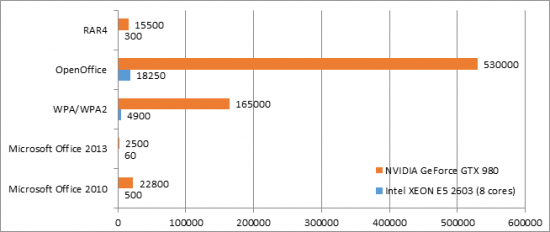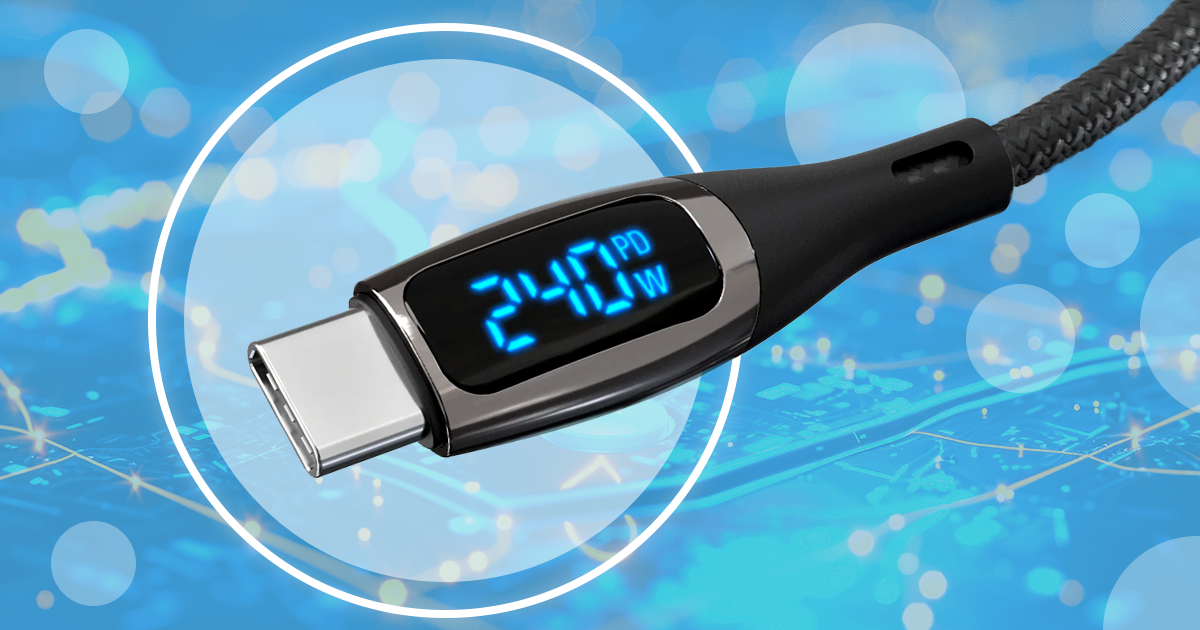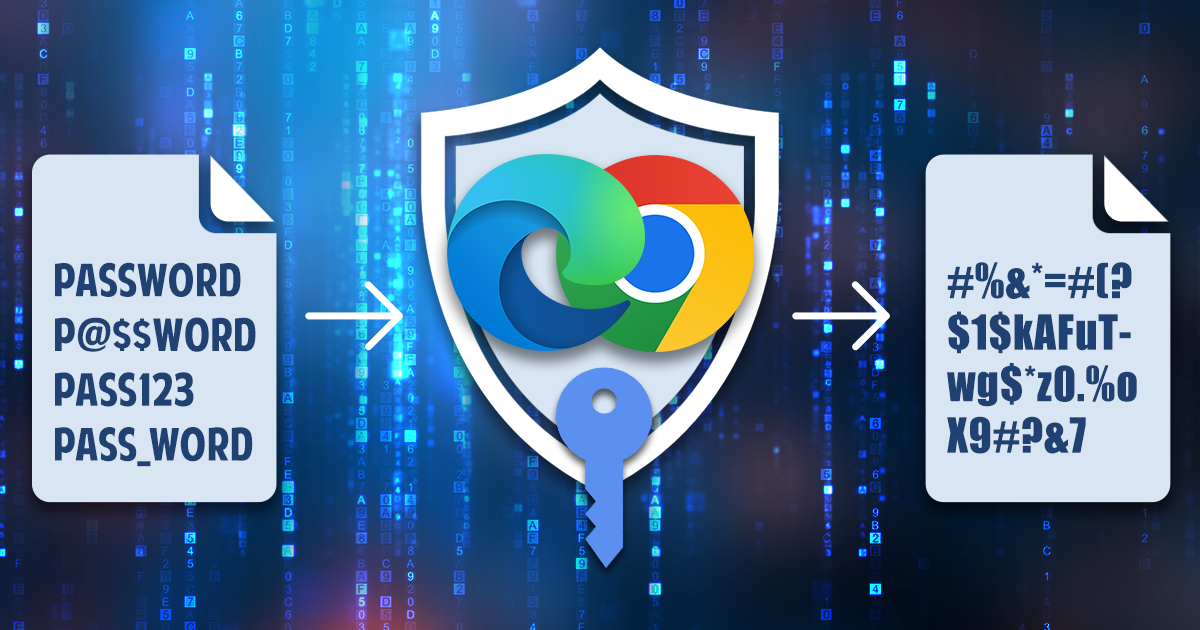We have just released a long-awaited update to one of our flagship products, Elcomsoft Distributed Password Recovery. While you can learn more about what’s been added and changed from our official announcement, in this post we’d like to share some insight about the path we took to design this update.
Hardcore Gaming: The Cutting Edge
Have you followed industry news for the last few years? Don’t you feel CPU’s don’t get any faster with every new generation? Indeed, if we take Intel’s top of the line i7 CPU, one can easily notive the visible lack of progress. Intel’s Sandy Bridge architecture was almost as fast as Ivy Bridge, while Haswell is considered by many a step back in performance. The upcoming and long-delayed Broadwell is no faster than Haswell, while future-generation Skylake chips will offer a marginal performance increase at best.
Have we reached a saturation point? Not quite. The cutting edge, it seems, has shifted from CPUs to gaming video cards. From Tesla to Fermi and from Kepler to Maxwell, NVIDIA was boosting the processing power. Back in 2010, a top of the line Tesla-based video card offered the performance of 576 GFLOPS. In 2011, Fermi topped that with 883 GFLOPS. 2012’s Kepler boosted that with 3090 GFLOPS, while 2014’s Maxwell more than doubled that performance with 6758 GFLOPS*. AMD had a very similar timeline with their Radeon range of video cards.
* The numbers are for comparable models of video cards
Since 2010, video card performance in the top segment had an increase of more than an order of magnitude. During the same period, the performance of Intel’s i7 CPUs has increased… well, let’s quote AnandTech: “Compared to Sandy Bridge, Haswell looks even more impressive. The Core i7-4770K outperforms the i7-2700K by 7 – 26%, with an average performance advantage of 17%.”
Yes, the result of three generations development of Intel CPU architecture is a measly 17% performance gain. Apparently, Intel decided to concentrate its efforts on building the most power-efficient CPU and not the highest-performing one.
Now why do we publish these numbers here, in a password cracking blog? And how are they connected with freshly updated Elcomsoft Distributed Password Recovery?
GPU Acceleration: Faster is Better
With CPU performance stagnating over the past four years of development, manufacturers of gaming video cards continue demonstrating steady growth, nearly doubling theoretical processing power of their GPU units with every new generation. Compare that to Intel’s 17% performance boost in three generations, and you’ll immediately realize why here at ElcomSoft we shifted our priorities to GPU processing entirely.
Talking of sheer processing power, a Kepler-based video card, for example, has reached 8122 GFLOPS in March 2014. For comparison sake, the performance of a then-current Intel i7-3930 CPU has reached approximately 153 GFLOPS (source: http://www.intel.com/support/processors/sb/CS-017346.htm), which is 53 times slower compared to a video card.
This is why we decided to concentrate our efforts on building a password recovery product that can make use of today’s GPU using to their maximum theoretic performance.
How does it work in real life? Just one example. Breaking RAR4 passwords on a single core of an Intel Xeon E5 2603 CPU results in a speed of about 40 passwords per second. Using all available cores of that CPU allowed us to squeeze about 300 passwords per second. However, using an NVIDIA GeForce GTX 980 based on the new Maxwell architecture results in approximately 15,500 passwords per second.
Here’s a graphical benchmark showing how many passwords per second Elcomsoft Distributed Password Recovery can try by using a CPU only vs. a top of the line video card:

|
Intel Xeon E5 2603 |
NVIDIA GeForce GTX980 |
| Microsoft Office 2010 |
500 |
22800 |
| Microsoft Office 2013 |
60 |
2500 |
| WPA/WPA2 |
4900 |
165000 |
| OpenOffice |
18250 |
530000 |
| RAR4 |
300 |
15500 |
GPU Acceleration: More is Better
As you can see from our benchmarks, using a last-generation, high-end video card gives a huge boost to real-life recovery speeds. However, the cost of a single NVidia GTX980 is over $500, which may not be to everyone’s liking. How about reaching a similar performance level without investing that much into the newest and greatest?
The latest release of Elcomsoft Distributed Password Recovery addresses exactly that, allowing you to save money on costly upgrades. In this release, we implemented a brand-new, fully asynchronous internal task scheduler, allowing you to use several different video cards in the same computer without the slightest performance hit – even if the cards in question are generations apart! In other words, you are welcome to *add* a new video card to your computer instead of *replacing* the old unit. You can now reach the same level of performance as using a costly top-of-the-line video card by purchasing a mid-range unit and letting it work together with your old video card. You can even mix AMD and NVIDIA boards, squeezing every last bit of performance out of your existing hardware.
AMD or NVIDIA?
In our official announcement, we mentioned some formats that we can only break with NVIDIA units. While AMD makes some great hardware, historically, Elcomsoft Distributed Password Recovery was leaning more towards NVIDIA boards due to the powerful CUDA SDK, more stable drivers and all the help NVIDIA engineers provide to third-party vendors helping us optimize our products. As a result, we can currently accelerate more formats with NVIDIA cards than with AMD units. This includes RAR4 and RAR5 archives as well as a few other formats. Below is the full list of formats that benefit from NVIDIA GPU acceleration (no support for AMD hardware acceleration):
- RAR4 and RAR5 archives
- ZIP archives
- PDF (Acrobat 9)
- MD5, LM, NTLM hashes
- TrueCrypt
- Domain Cached Credentials
- PGP
- IKE Dump
So if you are building a system purely for the purpose of breaking passwords, going NVIDIA is now the safest route, especially considering that the latest Maxwell-based NVIDIA boards appear to deliver best in class price/performance/quality ratio.



